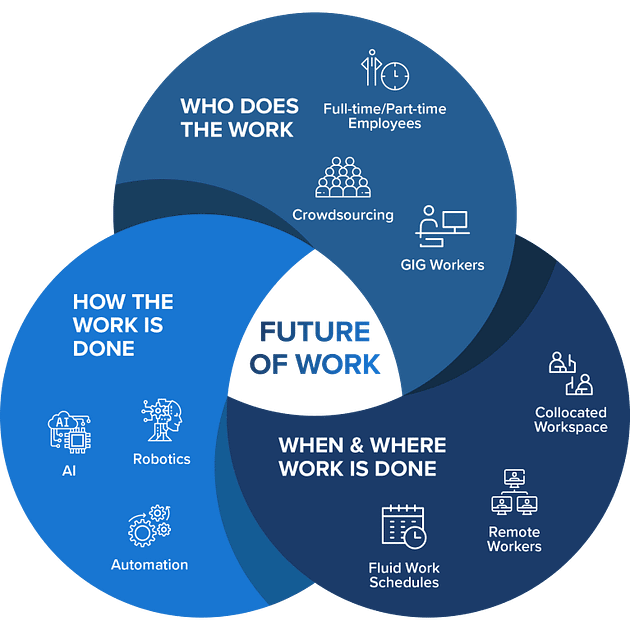views
The Future of Work: Trends and Predictions for the Evolving Landscape

The future of work is a constantly evolving topic that has gained significant attention in recent years. As technology continues to advance and businesses seek new ways to improve efficiency and productivity, the way we work is changing rapidly. In this article, we will explore the key trends and predictions for the future of work.
One of the most significant changes we are likely to see is a shift towards remote work. The COVID-19 pandemic has accelerated this trend, with many companies forced to adopt remote working practices to comply with social distancing guidelines. However, even before the pandemic, remote work was already becoming more popular due to the rise of digital communication tools and the desire for greater flexibility among employees.
The benefits of remote work are clear: it allows for a better work-life balance, reduces commuting time and costs, and enables access to a wider pool of talent. However, remote work also poses challenges such as isolation, lack of face-to-face interaction, and difficulties in managing teams. To overcome these challenges, businesses need to invest in digital communication tools, provide support for mental health and wellbeing, and establish clear communication channels and performance metrics.
Another trend we are likely to see is the increasing use of automation and artificial intelligence in the workplace. This will have a significant impact on job roles and require employees to develop new skills. Routine tasks such as data entry, customer service, and basic accounting will be automated, freeing up time for employees to focus on higher-value tasks such as problem-solving, creativity, and innovation.
To thrive in this new environment, employees will need to develop skills in areas such as data analysis, critical thinking, and creativity. Lifelong learning will become essential, as employees will need to continually upskill and adapt to stay relevant in their roles.
Finally, we are likely to see a shift towards a more flexible and agile workforce. Rather than relying on full-time employees, businesses will increasingly turn to a blend of permanent staff, freelancers, and contractors. This will enable businesses to access a wider range of skills and expertise, reduce labor costs, and respond more quickly to changing market conditions.
However, this shift also poses challenges such as managing remote teams, ensuring compliance with employment law, and maintaining a sense of cohesion and culture within the organization. To overcome these challenges, businesses will need to invest in digital platforms for talent management, develop clear guidelines for working with freelancers and contractors, and provide ongoing training and support to ensure everyone is aligned with the company’s goals and values.
In conclusion, the future of work is an exciting and rapidly evolving landscape that poses both opportunities and challenges for businesses and employees. Remote work, automation and AI, and a more flexible and agile workforce are just some of the trends we are likely to see in the coming years. To thrive in this new environment, businesses need to invest in the right tools, provide ongoing training and support, and create a culture of innovation and adaptability.
Do you want to To promote your business?
Get Your Business Featured at businessdor.com/get-featured/
Businessd’Or is a media company focused on business, innovation, investment, technology, entrepreneurship, leadership and lifestyle.











